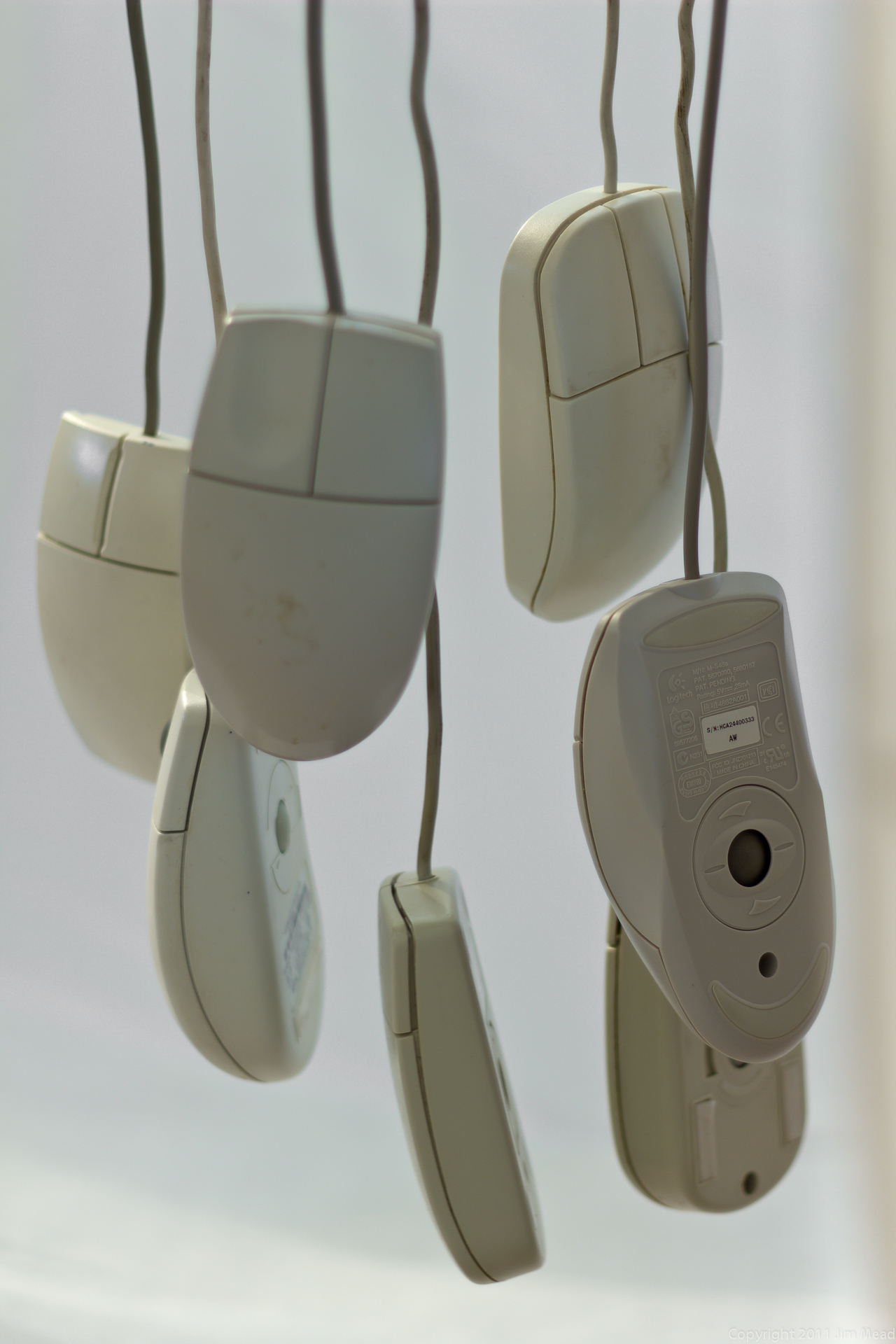
August 1, 2014, by michaelgroves
What is the plural of ‘computer mouse’?
It’s an old question- what is the plural of “computer mouse”- is it “mouses” or “mice”? My 1996 Collins dictionary says it’s “mice”, while my 2010 Oxford Learner’s dictionary says either. A number of websites suggest avoiding the issue altogether, and calling them “pointing devices”.
There is a theory that mouse is an acronym of “manually-operated user-select equipment.”, and therefore should not be an irregular plural. But to me this is too clumsy, and I think that it is actually a “bacronym”- an acronym made up to fit the word. It is much more likely that the thing is called a mouse because it looks like one- with its buttons looking like ears and its cord looking like a tail.
I think there is a more satisfactory answer- but we need to look at the nature of irregular plurals, especially when they are used in other contexts. A lot of this comes from Stephen Pinker’s excellent book- The Language Instinct.
According to him, we are comfortable with irregular plurals. For example, the plural of man is men. The plural of fireman is firemen. This is easy, because (gender specific language notwithstanding) they still keep their essential “man-ness”. The plural of snowman is snowmen- again because there is enough of the quality of the original noun to merit the irregular plural.
However, imagine you have three sets of friends coming for dinner. They are Mr and Mrs White, and Mr and Mrs Man and Mr and Mrs Child. You would refer to them as The Whites, quite naturally, and The Mans- crucially not The Men. The same would go for Mr and Mrs Child. You would not say The Children are going to bring the wine, unless you were referring to their offspring- The Childs’ children. This is because in the case of Mr and Mrs Child, and Mr and Mrs Man, their names are so far removed for the original concept of Child-ness or Man-ness that they are no longer connected to the irregular plural- the name is now its own word in our mental lexicon, and therefore follow the normal regularity rules for nouns.
So how does this apply to the computer mouse? My contention is that the thing connecting the computer mouse to the conceptual mouse in our minds is the physical resemblance, in other words the shape of the mouse with the cable. Therefore, a mouse with a cord has enough “mouse-ness” to carry the irregular plural. However, if the mouse does not have a cord, there is not enough “mouse-ness” and it loses its irregularity.
So the short answer is this. If your mouse has a cord, the plural is mice. If it is cordless, the plural is mouses.
Case closed.
(Image by Jim Mead under creative commons. http://ko.fotopedia.com/items/flickr-6832252441)
-
Post a comment
